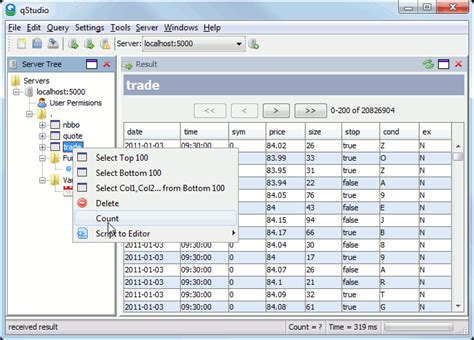Creating a tool from scratch, especially something as intricate as an SQL editor, is no small feat. Over the past ten years, qStudio has evolved from a personal project into a fully-fledged application tailored for data analysts. The developer behind this project poured countless hours into not just coding, but also refining the tool based on real-user feedback. The incorporation of libraries like JFreeChart and Flatlaf has made the software visually appealing and functional. One can’t help but admire and analyze the journey of such a development saga.
The journey of qStudio began in the developer’s necessity to solve a problem— a classic origin for many successful software tools. Initially created to meet the specific needs of a team handling vast amounts of data, the tool naturally expanded. The early phase focused on getting a minimum viable product that provided the essential functionalities for SQL querying. Chart generation, data visualization, and exporting capabilities were gradually integrated, enhancing the tool’s utility.
The path to creating qStudio was not linear, as noted by the comments on its launch announcement. There were years solely dedicated to minor bug fixes and stabilization. The realization that data analysts needed more than support for a couple of databases led to the integration of multiple database technologies and enhanced SQL highlighting features. Noticeably, the tool evolved to address user needs like creating pivot tables and providing robust export options. The development of Dark Mode and theme support further modernized the tool, indicating a developer sensitive to the changing user interface trends.
Ryan Hamilton, the developer of qStudio, also highlights an essential part of the development philosophy—open-source considerations. His reflections underscore a vital lesson for many developers: the advantages and challenges of going open-source from the onset versus implementing it later. While qStudio is not fully open-source, the partial visibility of its code and receptiveness to community contributions are commendable. Engaging with the community through platforms like GitHub enables developers to fine-tune their tools and integrate highly requested features, fostering user loyalty and software improvement.
The user feedback captures both triumphs and trials. Some users faced initial hiccups like application crashes on specific setups, especially on Mac OS. The interaction highlights the unpredictable nature of software deployment across diverse environments. Solving such issues sometimes required a deep dive into platform-specific troubleshooting, which the developer handled meticulously. Feedback like this, albeit critical, demonstrates users’ engagement and willingness to see the software improve. It’s a clear indicator of a community-driven development model’s strength.
On the other hand, some users praised its speed and responsiveness, crediting this to the evolution of hardware over the decade rather than severe revisions of the code itself. This focus on user experience—ensuring the software remains stable and performant—has obviously been a priority. Developers can learn from this; optimizing for modern hardware without compromising the core utility can often deliver a product that feels fresh and efficient despite its vintage origins.
The dedication to making the tool accessible and valuable without a hefty price tag reveals a unique intersection of passion and pragmatism. While the software is free, the developer’s strategic choice to keep certain parts of it paid for—targeting niche database users in finance—funds the free offerings. This model not only sustains the development financially but also ensures that the broader data analyst community benefits from a powerful tool without significant investment. This dual approach effectively combines content marketing with genuine product development, proving beneficial in both user acquisition and retention.
Furthermore, the community’s curiosity about the long development timeline and the persistent dedication highlights an important aspect often overlooked in the software world: patience and perseverance. Good software does indeed take time, as evidenced by qStudio’s own decade-long journey. The constant evolution to align with user needs, staying updated with technological trends, and continuously refining the user interface are crucial pillars of any long-lasting software project.
In conclusion, qStudio stands as a testament to what prolonged dedication, user-centric development, and strategic open-source engagement can achieve. This SQL editor not only fulfills a niche but also paves the way for future tools aspiring to bridge the gap between usability and functionality in data analysis. Its journey and the community feedback provide valuable lessons for developers and entrepreneurs alike—showcasing that building software is as much about understanding user needs and adaptability as it is about coding. For those interested, you can explore qStudio and contribute to its ongoing evolution via its [GitHub repository](https://github.com/timeseries/qstudio).


Leave a Reply